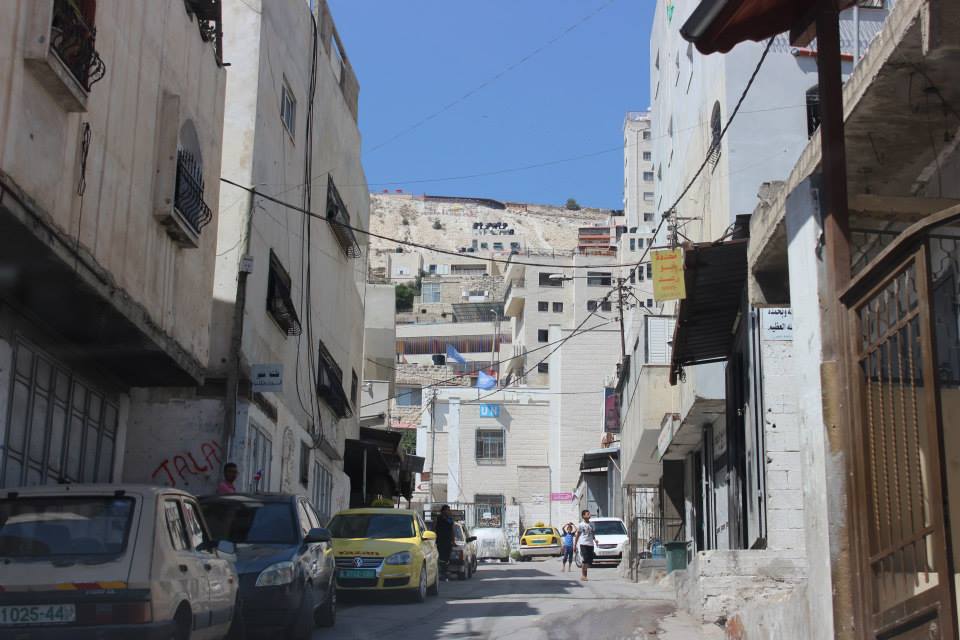Not Turning the Other Cheek: Peaceful Resistance in Occupied Palestine
Palestinian activist, Bassem Tamimi, spoke at American University’s College of Arts and Sciences earlier this month in an event was hosted by Students for Justice in Palestine (the only Palestinian advocacy group on campus). Tamimi spoke about his experiences as an activist––the obstacles he and his family has faced and the goals for Palestine he hopes to reach. Most importantly, he called on us, as both students and Americans, to actively support the resistance through peaceful demonstrations. Considering the recent attack on Gaza over the summer, hearing this perspective, I would argue, can help Americans better understand the Palestinian experience.
Tamimi is recognized by the European Union and Amnesty International for his peaceful resistance against the Israeli occupation in Palestine. He is a grassroots organizer of protests in the village Nabi Salih and, over the course of his activism, has been jailed nine times. In 1993, he was arrested and tortured by Israeli authorities, which put him in a coma for ten days. Afterwards, he woke up paralyzed. This is just the beginning of the terrorism he and his family faced against authorities.
His sister is believed to be killed by an Israeli soldier when the IDF held her in custody in 1993. Later in 2012, his brother-in-law was shot and killed by an Israeli soldier. His son was arrested at 16 and his wife has been arrested five times because he helped organize non-violent demonstrations against the occupation. Still, in the face of reactionaries, he works hard for the justice of Palestinians.
“I want to win my humanity, I don’t want to be like my enemy,” he said.
Although Tamimi takes a peaceful approach to most of his demonstrations, he believes violent resistance is valid. Tamimi sees Hamas, a Palestinian-Islamic organization, as a part of the Palestinian revolution against Israel’s control. The organization is considered to be a terrorist group by the United States and many other countries due to the rocket attacks against Israel. Tamimi believes that he does not have the authority to dictate how others resist. Many pro-Palestine advocates argue that Hamas’s violent tactics are only a defense against Israel’s attacks and do not violate International law.
He also views stone-throwing as a less violent act and more a symbol of the civilian’s opposition against military occupation in Palestine. He finds no harm in this action because, contrary to what Israeli authorities may argue, rocks barely do harm and are unequal to the arsenal in possession of the occupiers.
Unfortunately, stone-throwing is considered a terrorist act by Israel and offenders may be jailed or be shot. Earlier this year, a 17-year old Palestinian was shot dead in the West Bank by Israeli soldiers for rock throwing.
He said this is why students—and why I am standing––should stand in solidarity with Palestine.
Tamimi also faced an arrest over alleged incitement of rock throwing. In March 2011, he was arrested and detained after one of his demonstrations and charged with incitement, organizing protests without a permit and prevention of justice.
He was found guilty by the military court but exonerated of more serious charges because the witness’s testimony was inconsistent. Tamimi’s exoneration was a major breakthrough because the Israel military court’s conviction rate for those who defend Palestine is almost 100 percent.
Tamimi’s conviction has caught the attention of people in power. Catherine Ashton, the European Union High Representative of the Union for Foreign Affairs and Security Policy, called for Israel to allow Palestinians to peacefully protest. Some may say that that the international attention Tamimi received is a major accomplishment. But we still have ways to go.
If authority figures can show their support through words, then students can do a lot more through action.
Tamimi’s main goal in his activist work is to make Palestine a better place for future generations. He hopes to see Palestine become a state centered on the values of peace and human rights.
“We want to build the future for our children,” he said.
However this can only be attained through strategies of peace and resistance. Tamimi wants children to be strong enough to face the enemy, but he also wants students and Americans to organize and resist the occupation together. He calls to action for all of us to help support the movement against the occupation in ways that we can, whether it is through boycotts or protests. What matters is that we do something.
To him, only emotionally supporting Palestinians, instead of being active, is not enough. There are several ways that we can be active in this movement.
The BDS movement or boycotting, divesting and sanctioning is a peaceful resistance movement that Tamimi approves of. Pro-Palestine activists in America have been participating in the BDS movement as a way to show their resistance against Israel occupation. This includes boycotting brands or products that profit off of the abuse of Palestinian rights such as SodaStream, Eden Springs or HP. The divestment movement encourages companies to divest from corporations that profit off of the abuse of Palestinian rights and the sanction movement campaigns for international disapproval or sanctions against Israel’s actions.
First, he believes that we have to stop making out this conflict to be over religion because Palestinians do not discriminate against other religions. Next, we need our voices to be heard through social media and use this as a platform to talk about injustices against Palestinians and protest the Israeli government. Finally of course, we need to continue to be nonviolent. And most importantly, push for nonviolence.
He thinks if peaceful strategies are utilized everywhere, the military industrial complex would eventually be unnecessary. Peaceful demonstrations such as marching and protests can help spread the message and urgency of this issue. Tamimi believes that with these methods of peaceful demonstrations, we can solve international conflicts with humanity and love.












